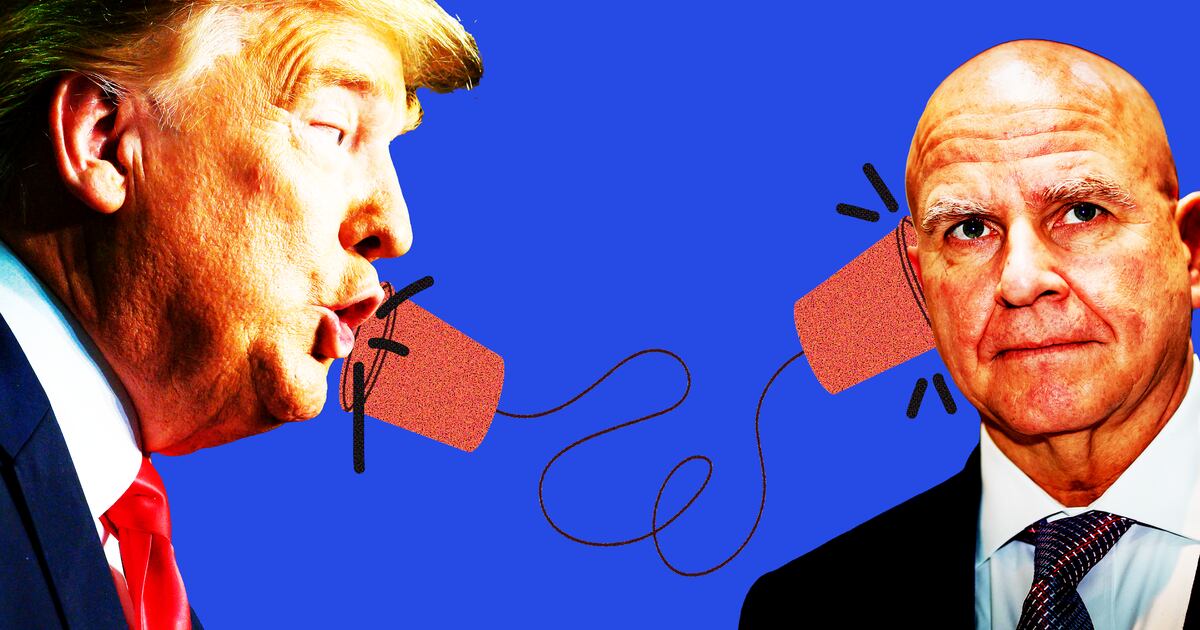
The Senate has voted on health-care reform. As the nation exhales in profound relief—Christmas can proceed unsullied now—here is a lexicon that sums up, in skeptical fashion, the numerous issues, principles and personalities.
A is for abortion, that American moral soap opera, which clambered onstage and threatened to bring a late-term end to the health-care bills in both the House and Senate. President Obama's precious baby was saved by canny (and expensive) midwives called amendments and add-ons.
B is for: Max Baucus, author-in-chief of the Senate health-care bill— why doesn't anyone call it BaucusCare, dammit?—who must have a hide as thick as a hippo, given that the final tome bears so little resemblance to the original; Blue Dogs, conservative House Democrats who strained hard at the health-care leash, one of whom—a freshman cur called Parker Griffith—defected to the Republicans rather than align himself with "a party that continues to pursue legislation that is bad for our country"; and Big Pharma, which locked itself into a "rock-solid" deal with the White House that capped industry costs from health-care reform at $80 billion over 10 years… only to be told that they'd have to stump up a few billion more. (But what's an extra $20 billion for the most profitable industry in the world?)
C is for C-Span, the only place where you can follow this story without being yowled at by naked partisans; Canada, a country with which we have free trade, unless you shop at one of their pharmacies, and whose health-care system has become a touchstone in the U.S. health-care debate: "There we go, but for the grace of God," say Republicans; "We oughta be like Ottawa," say many Democrats; and " Cadillac plans": Which genius thought to liken the most expensive private health insurance to tacky cars that no one drives anymore?
D is for Democrats, who now, in the parlance of Washington, "own" health care, the one quagmire for which they cannot blame the president's predecessor and Dick Cheney and the vast neocon conspiracy; for deficits (seldom has so little attention been paid by so many to so much); and for Howard Dean, obstreperous leader of the progressives, who wished, first, to kill a bill that had more amendments than a POW has bandages, but later swung behind it with his own hearty logic: "If the Republicans hate it, there must be some good in it." And let's not forget death panels, Sarah Palin's jauntily inflammatory phrase for the "Independent Medicare Advisory Board." (These words revived her moribund career, underscoring the truth that politics is mostly about locution, locution, locution.)
E is for eight-hundred and seventy-one billion dollars, the Congressional Budget Office's estimate of the bill's cost, and for entitlements, sprinkled generously in the legislation like the nutmeg in your eggnog. (For a taste of one stashed in the Senate bill, I give you the "Community Living Assistance Service and Supports Act"—the acronymically delicious CLASS Act.) Spare a thought, in all this, for Alain Enthoven, eminent Stanford economist and father of "managed competition," whose theories became a hash in Congress, and who has written that "The tragedy is that the two laws working their way through Congress do practically nothing to slow health expenditures... The American people are being deceived."
F is for filibuster, the feeble last resort of the forlorn Republicans. (Next time, ladies and gentlemen, try using ideas…)
G is for government, as in gargantuan government (see "individual mandate," below) , and our fine-spoken president's first gaffe, in which he described the country as being on the "precipice" of health-care reform. (He meant "verge," of course, but ponder the likely snark-fest if his predecessor had spoken so infelicitously.) G is also for Atul Gawande, a very fine writer on matters medical and the White House's chief carnival barker on health care.
H is for the House, where Obamacare had its first formal, fractious outing, and " historic," the word/ hyperbole most frequently deployed by Democrats to describe their health-care project. It's also for Health Savings Accounts, the Republican solution whereby people pay their own bills (weird, right!), now likely to go up in smoke.
I is for the individual mandate, which would require all Americans, by law, to purchase health insurance. Even the CBO has noted that "a mandate requiring all individuals to purchase health insurance would be an unprecedented form of federal action…. The government has never required people to buy any good or service as a condition of lawful residence in the United States."
J is for John McCain, who appears to have sprung back to political life from a semi-recumbent position. As the health-care bill reached the Senate, the Arizona Republican reached for his thesaurus, railing against the "Cornhusker kickback" and the "Florida flimflam," while also describing the bill as "one of the great Bernie Madoff gimmicks that I've ever seen, that anybody's ever seen."
K is for Ezra Klein, clever policy pisher and Obamacare's blogger in chief. Read him here.
L is for Joe Lieberman, who so very nearly stole the show, ruined the carnival, caused the deaths of thousands of people—choose your metaphor—by his opposition to the Senate bill. The vitriol on display against him was wondrous to behold, but the truth is that he protected the bill's backers from their own worst instincts—and saved Obamacare in the process. L is also for Mary Landrieu, whose " Louisiana Purchase" netted a cool $300 million in Medicaid subsidies for "certain states recovering from a medical disaster," aka Katrina; and for lobbyists, the people Obama promised to vanquish, but whose influence has exploded as Washington takes direct control over one-seventh of the economy. (While we're on the subject, here's a lively illustration of the "Max Baucus Health-Care Lobbyist Complex".)
M is for Medicaid & Medicare: the former just grow'd like Topsy, while the latter was kept in check (for now) by Lieberman; and also for Montana. That state is on a roll: It has bagged higher Medicare payments, by virtue of its "frontier" status, and will receive enhanced Medicare coverage for Montanans exposed to asbestos-related hazards in or near Libby. (Thanks, Max!) "M" is also for Medical Loss Ratio, the amount of your premium dollars that has to be spent on some one else’s medical care. (We used to call them "price controls.")
N is for Ben Nelson, who, but for the grace of Lieberman, would have been Mephistopheles-in-chief. In fighting his war against abortion, this latter-day Horatio socked away a sweetener for his state, Nebraska, worth $100 million: to wit, an exemption from the insurance fee for Nebraska Blue Cross/Blue Shield and Mutual of Omaha, plus federal payment for every last cent of new Medicaid coverage. (Who said Warren Buffett was the smartest man in Nebraska?)
O is for Obama, the architect, and Obamacare, his legacy: Brave New World or Collectivist Nightmare? You decide. It's also for Peter Orszag, head of the Office of Management and Budget, the geek with the tables, and the McNamara of health care. Politically ambitious, he recognizes that he could be a major player if he helps pull off health reform. (Geithner's job?)
P is for Nancy Pelosi, calculating and cold, a consummate dominatrix of recalcitrant congressmen; the public option, which fell, formally, by the wayside, but which will surely resurface—and stalk the land again—like one of those mummies from the old Hammer House of Horror; and public opinion, which has been given short and regal shrift in the drive to pass the bill before Christmas. (An NBC-Wall Street Journal poll last week showed that only 32 percent of Americans thought the bill a "good" idea.)
Q is for quid pro quo: See Louisiana, Montana, and Nebraska, above, and Vermont, below (also Connecticut, Florida, Michigan, North and South Dakota, and Wyoming); and quality of care, which is likely to decline—is it not?—when all medicine is the bailiwick of Congress.
R is for Harry Reid, a cross between an actuary and Machiavelli, he is the single most important contributor to the passage of the bill in the Senate. A political animal, pure and simple, and a toned-down version of Pelosi, he knows how to move legislation—even if it means gutting it of its original intent. R is also for reconciliation: in effect, the bastard child that will be born of the urgent coupling of the House and Senate bills; and reform, a word that all of us—even critics—use reflexively when discussing the health-care project. All except the Wall Street Journal's Washington Bureau, that is…
S is for the Senate, which has given us better theater these last days than anything on Broadway or in Avatar (Why not Health-Care Reform: The Movie, with John Malkovich as Joe Lieberman and Hilary Swank as Nancy Pelosi? But who would play Harry Reid?); socialized medicine, which many Americans fear they're on the "precipice" of ; and Kathleen Sebelius. (Kathleen who?)
T is for taxes, the explosive parallel narrative of health-care reform.
U is for unconstitutional. That's what Richard A. Epstein, a pre-eminent libertarian law professor, says he thinks of the bill. His argument is deeply wonky, but don't disregard it, especially with the Roberts court in place. U is also for the uninsured: Wasn't this whole gaudy spectacle put on just for them? And was their situation really so bad as to require, as a "fix," the greatest social-spending program in American history and the turning of our health-insurance industry into a public utility?
V is for victory (Pyrrhic), and vast numbers, of which, herewith, a small sample: The House bill is 2,032 pages; the Senate bill 2,074 pages; amendments to the latter, 383 pages; Medicaid reimbursements to Vermont, $600 million; the cost of reform, $871 billion, and counting (see "E," above).
W is for The Wall Street Journal's editorial column, which has provided the intellectual opposition to Obamacare so lacking in the Republican Party. Never one for mealiness of mouth, the column, memorably, described Pelosi's House bill as " The Worst Bill Ever."
X is for Xmas, once a Christian holiday, now a secular political deadline.
Y is for those very expensive " yes" votes (see A, L, M, N, Q, and V, above).
Z is for the Zeitgeist: Will the Times still be for Obama once the costs begin to kick in? That, dear readers, is the zillion-dollar question.
Tunku Varadarajan is a national affairs correspondent and writer at large for The Daily Beast. He is also a research fellow at Stanford’s Hoover Institution and a professor at NYU’s Stern Business School. (Follow him on Twitter here.) For this week's column, he'd like to offer a tip of the hat to: Nancy Blakestad, Jeff Bliss, David Gratzer, Rebecca Rothman Klein, Joel Kotkin, Thomas Lipscomb, Michael Maiello, Lawrence Osborne, Joseph Rago, Mark Rice, Hugh H. Shull III, Lionel Tiger, Salil Tripathi, and Catherine Barr Windells.






